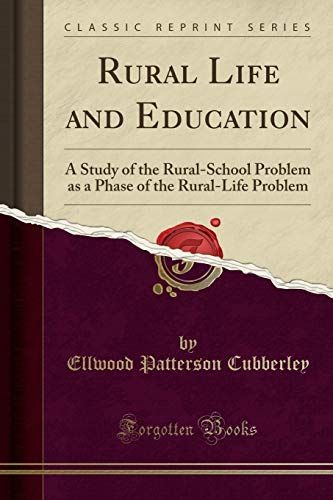
Rural Life and Education A Study of the Rural-School Problem as a Phase of the Rural-Life Problem
Excerpt from Rural Life and Education: A Study of the Rural-School Problem as a Phase of the Rural-Life Problem A recent writer has stated that the rural-school problem would be much easier of solution if some writer on the subject would clearly set forth the nature of the problem. The suggestion was a good one, as most writers on the subject do not seem to see clearly the nature of the problem they are considering. The rural-school problem of to-day is a social, even more than an educational problem, and is the result of a long national evolution, coupled with recent profound changes in rural life itself. The rural-school problem is inseparable from the rural-life problem, and of which it is but a phase. Those who do most toward its solution will be those who see the problem clearly in its historical and sociological setting, and who have some grasp of American rural history. To give the problem such a setting has been the purpose of the first part of the book. The rural-life problem is there set forth in its historical development, and the origin and present status of the rural-school problem shown. With this as a basis the student is ready to pass to the second part of the book, which sets forth specifically the present rural-school problem, and points out the fundamental nature of the remedies which must be applied for its solution. About the Publisher Forgotten Books publishes hundreds of thousands of rare and classic books. Find more at www.forgottenbooks.com This book is a reproduction of an important historical work. Forgotten Books uses state-of-the-art technology to digitally reconstruct the work, preserving the original format whilst repairing imperfections present in the aged copy. In rare cases, an imperfection in the original, such as a blemish or missing page, may be replicated in our edition. We do, however, repair the vast majority of imperfections successfully; any imperfections that remain are intentionally left to preserve the state of such historical works.